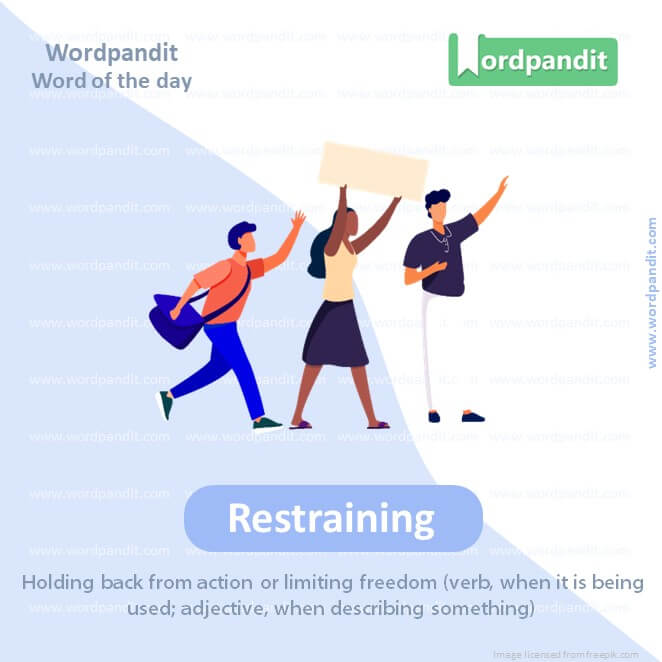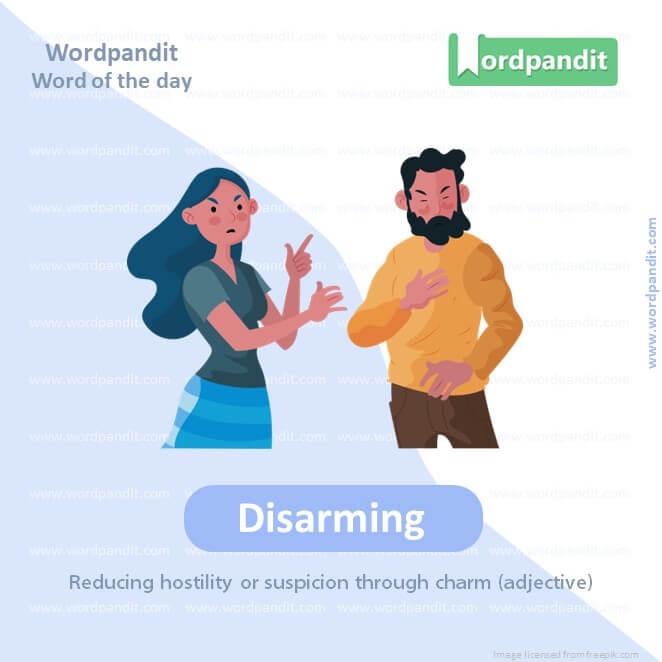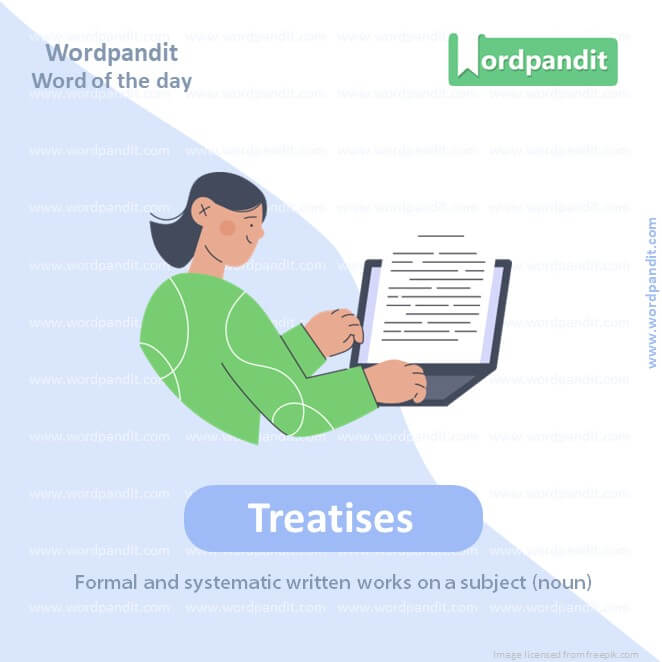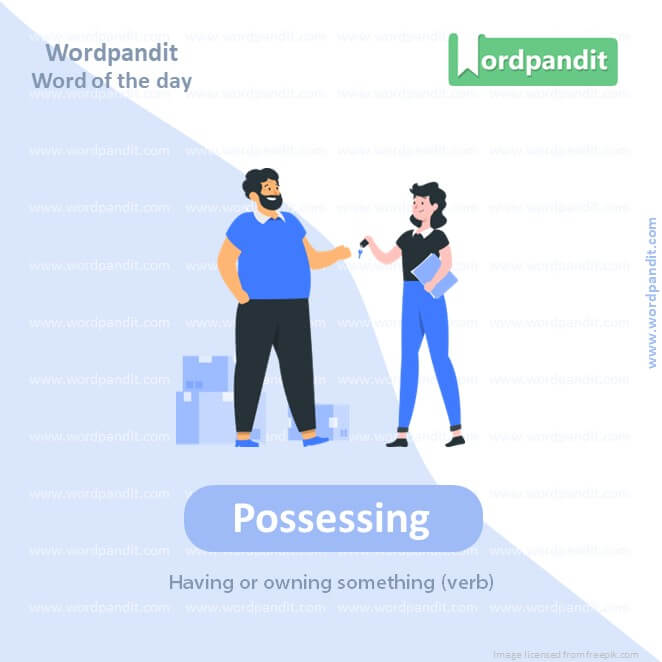Daily Vocabulary Words: List of Daily Used Words in Leading International Newspapers
Hi there. Welcome to this special section @ Wordpandit.
Our endeavour here is very simple: to highlight important daily vocabulary words, which you would come across in leading newspapers in the country. We have included the following newspapers in our selection:
• The New York Times
• The Washington Post
• Scientific American
• BBC
• The Guardian
• Psychology Today
• Wall Street Journal
• The Economist
We are putting in extensive work for developing your vocabulary. All you have got to do is be regular with this section and check out this post on a daily basis. This is your repository of words that are commonly used and essentially, we are posting a list of daily used words. Hence, this has significant practical application as it teaches you words that are used commonly in leading publications mentioned above.
Visit the website daily to learn words from leading international newspapers.

WORD-1: Reminiscent
CONTEXT: it’s not that difficult to see a scenario painfully reminiscent of 2016.
SOURCE: Washington Post
EXPLANATORY PARAGRAPH: Imagine you have a favorite blanket that smells like your grandma’s house. Whenever you smell it, it makes you think of her. That’s what “reminiscent” means – it’s when something makes you remember something else.
MEANING: Evoking memories or images of something (adjective).
PRONUNCIATION: rem-uh-NIS-uhnt
SYNONYMS: evocative, reminiscent, suggestive, remindful, redolent
USAGE EXAMPLES:
1. The music was reminiscent of her childhood.
2. He told stories reminiscent of his adventures.
3. The scent was strongly reminiscent of vanilla.
4. Her dress was reminiscent of the style from the 1920s.

WORD-2: Restraining
CONTEXT: the federal law barring gun possession by those subject to domestic violence restraining orders.
SOURCE: New York Times
EXPLANATORY PARAGRAPH: When you’re playing and your mom says you can’t go outside, she is keeping you safe inside. “Restraining” is like that – it’s when you stop someone or something from doing what they want to keep everything safe or in order.
MEANING: Holding back from action or limiting freedom (verb, when it is being used; adjective, when describing something).
PRONUNCIATION: ree-STRAY-ning
SYNONYMS: controlling, inhibiting, holding back, constraining, restricting
USAGE EXAMPLES:
1. The police officer was restraining the crowd.
2. She was restraining herself from eating sweets.
3. The law was restraining their activities.
4. He used a leash for restraining his dog.

WORD-3: Disarming
CONTEXT: the dead hand of colonial-era history prevents the 21st-century government from temporarily disarming those credibly accused of domestic violence.
SOURCE: Al Jazeera
EXPLANATORY PARAGRAPH: When your friend smiles at you in such a nice way that you can’t stay mad at them, that smile is “disarming.” It makes you feel good and forget all the bad feelings.
MEANING: Reducing hostility or suspicion through charm (adjective).
PRONUNCIATION: dis-ARM-ing
SYNONYMS: charming, endearing, winning, captivating, engaging
USAGE EXAMPLES:
1. She had a disarming smile.
2. His disarming honesty won them over.
3. The disarming gesture eased the tension in the room.
4. He told a disarming story that made everyone laugh.

WORD-4: Treatises
CONTEXT: Judges were instructed to scour statutes and treatises from the era of cannonballs and muskets to find a “well-established and representative historical analogue” for modern-day gun rules.
SOURCE: Guardian
EXPLANATORY PARAGRAPH: If you have a big book full of ideas about why sharing toys is good, that’s like a “treatise.” It’s a long, detailed writing about a special subject.
MEANING: Formal and systematic written works on a subject (noun).
PRONUNCIATION: TREE-tuh-sis
SYNONYMS: essays, dissertations, theses, papers, studies
USAGE EXAMPLES:
1. The philosopher wrote a treatise on ethics.
2. Her treatise on gardening was very informative.
3. The library had many treatises on history.
4. He published a treatise on the laws of physics.

WORD-5: Possessing
CONTEXT: Courts have reached conflicting views about the constitutionality of prohibiting felons and drug users from possessing firearms.
SOURCE: New York Times
EXPLANATORY PARAGRAPH: If you have your own toy and it belongs to you, you are “possessing” it. It means having something that is yours.
MEANING: Having or owning something (verb).
PRONUNCIATION: puh-ZES-ing
SYNONYMS: owning, holding, having, keeping, controlling
USAGE EXAMPLES:
1. She was proud of possessing a new bicycle.
2. He was accused of possessing stolen property.
3. Possessing a valid ticket is required for the concert.
4. They were happy possessing their first home.
WORD-6: Parsimoniously
CONTEXT: Second, judges have been “parsing the historical evidence” too parsimoniously.
SOURCE: New York Times
EXPLANATORY PARAGRAPH: When you only use a little bit of your paint so it lasts a long time, you’re being “parsimonious.” It means being very careful with using things so you don’t run out.
MEANING: Very sparing or frugal (adverb).
PRONUNCIATION: par-si-MOH-nee-us-lee
SYNONYMS: frugally, sparingly, thriftily, economically, conservatively
USAGE EXAMPLES:
1. She lived parsimoniously, saving every penny.
2. The charity operated parsimoniously to use the funds wisely.
3. They decorated their home parsimoniously but tastefully.
4. He managed his resources parsimoniously.
WORD-7: Enthusiasm
CONTEXT: this framing failed to lure enough moderates or dampen Democratic enthusiasm.
SOURCE: Guardian
EXPLANATORY PARAGRAPH: Enthusiasm is like when you feel super excited and happy about something, like going to the park or having ice cream. It’s feeling really, really good about something you’re going to do or are doing.
MEANING: Intense and eager enjoyment or interest (noun).
PRONUNCIATION: en-THOO-zee-az-um
SYNONYMS: excitement, eagerness, zeal, passion, fervor
USAGE EXAMPLES:
1. Her enthusiasm for the project was contagious.
2. He showed great enthusiasm at the idea of traveling.
3. The team’s enthusiasm helped them win the game.
4. The children’s enthusiasm for the trip was evident.
WORD-8: Paramount
CONTEXT: Public safety remains a paramount concern. Democrats who distanced themselves from defund-the-police sloganeering and took citizen concerns seriously fared well.
SOURCE: Washington Post
EXPLANATORY PARAGRAPH: Think of the biggest, tallest superhero as the “paramount” one – they’re the most important and powerful of all the superheroes.
MEANING: More important than anything else; supreme (adjective).
PRONUNCIATION: PAR-uh-mount
SYNONYMS: foremost, chief, primary, principal, supreme
USAGE EXAMPLES:
1. Safety is of paramount importance.
2. The customer’s needs are paramount to our business.
3. The paramount leader made the final decision.
4. Her happiness was paramount to him.
WORD-9: Altercation
CONTEXT: Ms. Biberaj lost significant support after she brought charges, following an altercation at a school board meeting, against the father of a girl who had been sexually assaulted in a high school restroom.
SOURCE: Washington Post
EXPLANATORY PARAGRAPH: If you and your friend argue about who gets to play with a toy, that’s an “altercation.” It’s a fancy word for a fight or argument.
MEANING: A noisy argument or disagreement, especially in public (noun).
PRONUNCIATION: al-ter-KAY-shun
SYNONYMS: argument, dispute, quarrel, squabble, confrontation
USAGE EXAMPLES:
1. They got into an altercation over the game’s rules.
2. The altercation in the store was loud and disruptive.
3. Police were called to calm the altercation.
4. Witnesses described the altercation between the two drivers.
WORD-10: Speculation
CONTEXT: Mr. Youngkin has an opportunity to focus more on governing than dealing with speculation about a possible late entry into the presidential race.
SOURCE: Washington Post
EXPLANATORY PARAGRAPH: When you guess about what your birthday present might be, you’re making a “speculation.” It’s when you think about things that could happen or be true without knowing for sure.
MEANING: The forming of a theory or conjecture without firm evidence (noun).
PRONUNCIATION: spek-yuh-LAY-shun
SYNONYMS: conjecture, guesswork, theorizing, hypothesizing, surmising
USAGE EXAMPLES:
1. There’s a lot of speculation about the new movie.
2. Her speculation about the outcome was incorrect.
3. The stock market is often driven by speculation.
4. They engaged in speculation about the celebrity’s life.
vocabulary 10 words
Expanding your lexicon but don’t know where to start? There’s an efficient approach that may just be the solution you’ve been seeking: focusing on vocabulary 10 words at a time. This method is known for its simplicity and efficacy, giving learners manageable and meaningful chunks of new knowledge to digest.
Let us delve into how to adapt the ‘vocabulary 10 words’ approach to your language learning routine. This strategy is quite straightforward: instead of attempting to learn dozens of words all at once, break your learning down into smaller steps. Take sets of vocabulary 10 words at a time. This not only makes the process less daunting but also allows for more focus and better retention.
Make your ‘vocabulary 10 words’ as diverse as possible. In these sets, include nouns, verbs, adjectives, and adverbs from different contexts. Creating variety within your selected vocabulary 10 words guarantees exposure to a range of language nuances while promoting a balanced growth of your verbal arsenal.
Afterward, engage with your chosen ‘vocabulary 10 words’ in different ways. Use them in written sentences, practice their pronunciation, or play word games. Interacting with these words in various forms reinforces their meaning and usage, ensuring that they stick in your memory.
At the end of each week, review your vocabulary 10 words. Recollection is vital in language acquisition, and revisiting these words will help cement them in your mind. Make this a regular practice for long-term retention and recall.
In conclusion, the ‘vocabulary 10 words’ tactic is not just about learning new terms. It boasts a targeted, balanced, and powerful approach to broadening one’s vocabulary. Not to mention, it fosters a manageable and enjoyable routine for learners of any language. Adopt the ‘vocabulary 10 words’ method and witness a considerable difference in your language proficiency.











